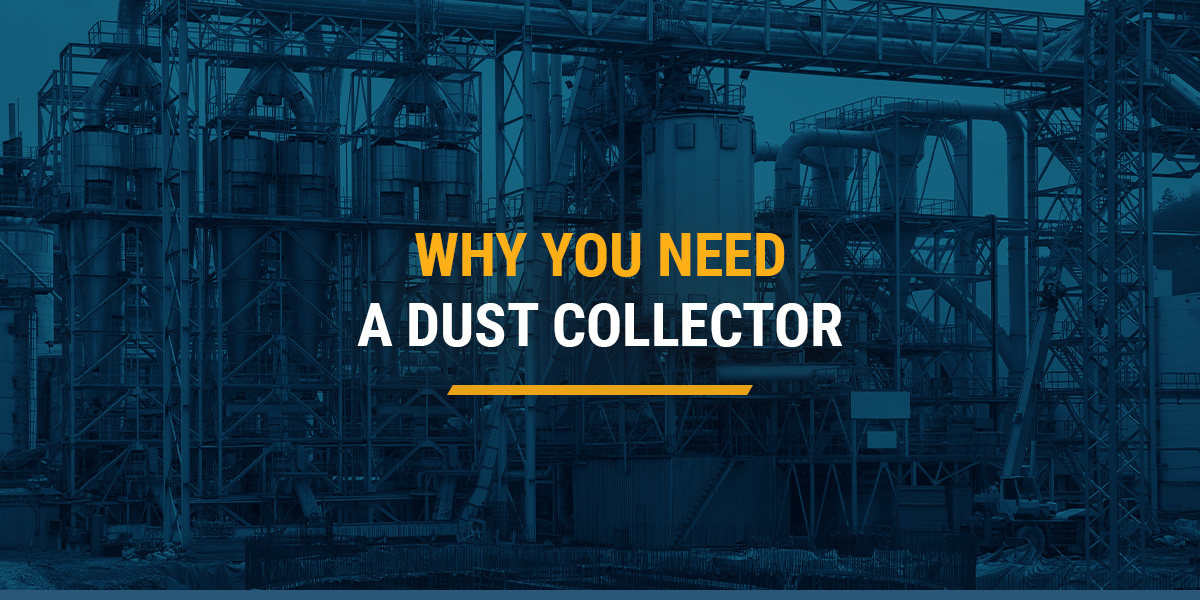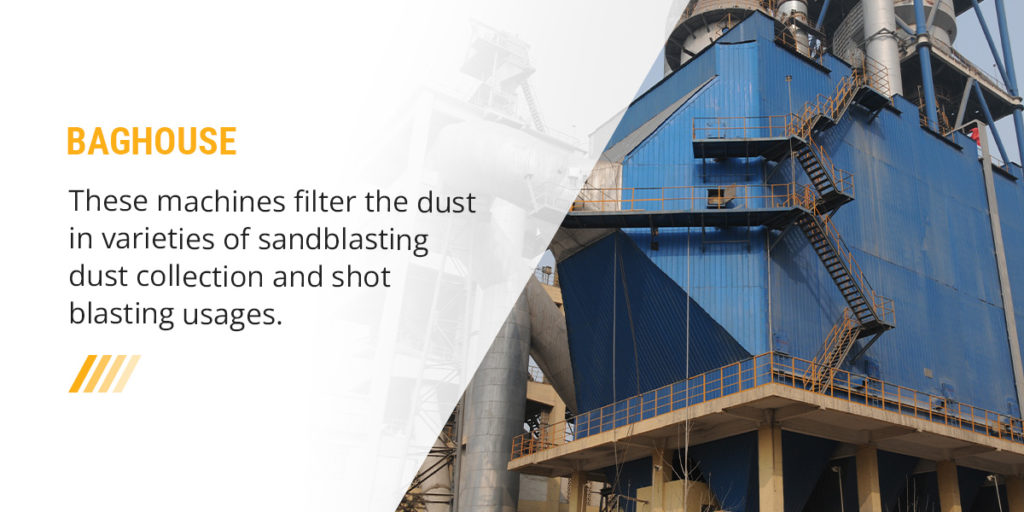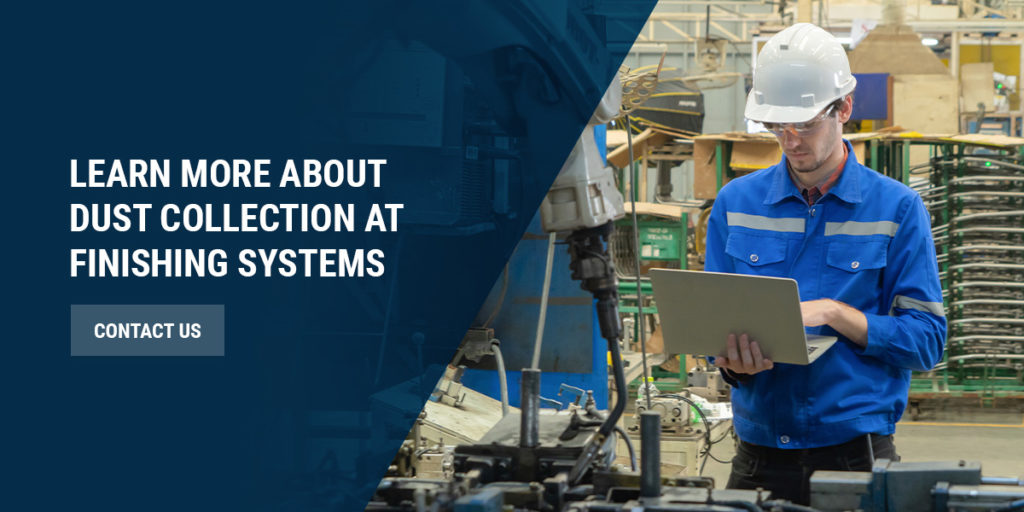
Why You Need a Dust Collector
September 26, 2022Warehouses, factories and other industries will often use machines that use abrasive materials or chemicals and paints that coat products. As the material breaks down or employees apply it, dust is usually released into the air. Many facilities that want to protect their products and staff use dust collectors.
Why Dust Collection Is Important in Your Facility
In workplaces where blast machines and equipment may produce a large amount of hazardous particles, containing the dust will be necessary. A facility will want to keep a clean and healthy environment to maintain smooth production and a steady work stream.
What Is a Dust Collector?
Dust collectors are a kind of air control equipment used in warehouses, factories and other industrial areas. These machines collect and remove harmful matter and gas fumes from manufacturing and production processes and purify and filter dust and particulates that are often released into the workplace. Dust collectors can improve air quality by using a filter to separate matter and releasing clean air into the environment.
Importance of Dust Collection Systems
Dust collectors are extremely important in warehouses and factories that may rely on pure air for workers’ safety. When blasting a surface in a designated blast cabinet, the coating or debris of the blasted area may break down into smaller particles. Pressurized air nozzles may also produce a large amount of dust inside the cabinet.
Because your facilities produce dust and other harmful materials, you should use the appropriate type and size blast cabinet dust collector. The blast dust collector should also be energy efficient, as an underpowered machine may create a larger mess or make the area unsafe for employees.
There are several reasons that dust collection systems are vital to the warehouse and factory workplace:
- Visibility: Reducing dust clouds can increase operators’ and employees’ ability to see the work area.
- Function: When the machine collects harmful materials, all other devices will function more smoothly, and you prevent damage to integral parts.
- Operator safety: Workers’ health can improve with the addition of dust collectors that minimize hazardous particles in the air.
- Workplace optimization: Consistent removal of dust from the air can prevent the contamination of other machines and optimize workplace functions.
- Cleanliness: A clean work environment will contain filtered air that is healthy and safe for all employees and machines.
Types of Dust Collectors
The larger the blast cabinet is, the more powerful a dust collector you will need. Here are three common types of dust collectors used in warehouses.
1. Abrasive
Abrasive blast booths are made of a large chamber that stores abrasive blast pots. Abrasive dust collectors can contain abrasive materials and recycle the particles collected from blasting. These machines usually have an enclosed space that prevents material from entering the air and moves the leftover particles to a recovery system.
2. Baghouse
Baghouse dust collectors are suited for blast cabinets that collect large amounts of dust in the area. Operators may also use a baghouse collector for its efficiency and affordable solutions in high-temperature situations. These machines filter the dust in varieties of sandblasting dust collection and shot blasting usages.
3. Cartridge
Cartridge dust collectors are compact machines that are more modular than baghouse dust collectors. Investing in a cartridge collector may be a good idea if your warehouse or factory has height and space restrictions. These machines work well in cases where a lower volume of dust needs to be contained and can be more powerful than baghouse collectors due to their filtering cartridges.
Cartridge collectors can be used for medium to large equipment and may be essential in environments where cross-contamination may occur.

How to Decide Which Dust Collection Solution Is Right for You
There are many factors to consider when choosing which type of dust collector is right for your facility. Consider every design element and capability before investing in a machine for your workplace. Here are a few areas to explore when choosing a dust collector.
Dust Size and Density
Find out the size of the dust particles and whether they are fine, large, bulky or abrasive. Discover the density of the dust and whether it is light or heavy. These qualities will impact how well your filters and technology work throughout the day. Some dust materials may also be hazardous to employees or at risk of combustion. Understanding the regulations, standards and local codes that apply to you will help reduce these risks.
For example, local rules may require a specific collector size or physical location and require employees to wear specific protective equipment. Suppose dust is toxic or corrosive, such as paints, chemical coatings or stainless steel materials. In that case, you’ll need to follow particular regulations to ensure your employees are always safe and healthy.
Filters
Filters are essential when reducing the amount of dust in the air. Abrasive or corrosive dust may need different filters depending on the material. Many different filter media options exist, and choosing the appropriate type will be as important as selecting any other machine part. Consider fine fiber, standard or specialty media for your dust collector.
Generation Points
Depending on where the dust is often produced, you may need different types or sizes of dust collectors to ensure a clean workplace. Single bag dump stations are often used for specific dust collection locations, such as next to equipment or in one warehouse area. A more extensive facility that generates a large amount of dust may consider using a centralized dust collector outside the facility.
Volume
It is essential to know how much dust your facilities produce on average. This will measure your dust collection demands and play a role in choosing the size, type and extra equipment for your facility’s dust collector.
Generation Time
Choosing a dust collector may depend on how frequently your facility generates dust. A continuous-duty collector might be a good choice if processes often generate dust. A more straightforward individual dust collection system may be better equipped to handle a facility with multiple stations that operate continually and produce dust.
Operations
Operating a dust collector will require constant care and maintenance every few months. Reduce time spent on maintenance by choosing the correct size and filter that best fits your facility.
Learn More About Dust Collection at Finishing Systems
Dust collectors are made to clean the facility and prevent damage to machines or health issues for employees. At Finishing Systems, our company is dedicated to providing quality metal finishing equipment and services. We offer exceptional service through our knowledgeable sales team, who can assist you in finding the right paint and powder spray booth, washer, blast room, mixing room or air makeup system for your workplace. Contact Finishing Systems today to learn more about our products and services, or call us at 800-582-3693.

